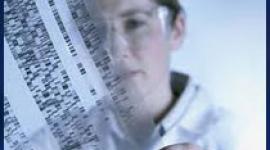Step 1: Rapid or Irregular Heart Rate
 Uncomfortable changes in heart rate are the most frequently reported symptoms of panic attacks. Over 80% of those experiencing panic list a rapid or irregular heart rate as a symptom.
Uncomfortable changes in heart rate are the most frequently reported symptoms of panic attacks. Over 80% of those experiencing panic list a rapid or irregular heart rate as a symptom.
Three complaints are common among patients who seek a doctor's advice about their heart: "My heart feels like it's pounding violently in my chest," "My heart is racing, " and "My heart feels like it skips a beat." An arrhythmia is any irregularity in the heart's rhythm. If the heart beats more rapidly than normal, this arrhythmia is called tachycardia. An unpleasant sensation in the heart, whether rapid or slow, regular or irregular, and of which one is consciously aware, is called a palpitation.
Physical Causes of Rapid or Irregular Heart Rate
- arrhythmia
- postmyocardial infarction
- tachycardia
- organic heart disease
- palpitation
- heart failure
- extrasystole
- infections
- coronary artery disease
Heart palpitation is typically an expected sensation when the force and rate of the heartbeat are considerably elevated. After strenuous exercise we are apt to notice the thumping of our heart against the chest wall. As we begin resting, that sensation may continue briefly until we recover from our exertion.
People who are prone to anxiety may have palpitations more frequently when they find themselves in psychologically uncomfortable situations. In fact, the great majority of complaints about the heart presented to physicians indicate a psychological rather than a physical problem. An anxious person may turn his attention to his physical symptoms instead of learning to cope with the situation causing the symptoms. After several episodes in which he experiences his heart "pounding" or "beating too fast," he fears it is a sign of heart disease or some other physical disorder.
It is possible to consciously notice a few minor disturbances of the heart rhythm. For instance, some people describe sensations such as a "flop" of the heart, the heart "skipping a beat" or "turning a somersault." We call this sudden forceful beat of the heart followed by a longer than usual pause an extrasystole. These premature contractions of the heart are usually of no serious significance and occur in many healthy individuals.
In fact, because of several research findings, we now know that arrhythmias of all kinds are common in normal, healthy individuals. In one recent study published in the New England Journal of Medicine, Dr. Harold Kennedy found that healthy subjects with frequent and complex irregular heartbeats seem to be at no more risk of physical problems than is the normal population. In general, researchers are finding that the majority of even the healthiest people have some kind of rhythm disturbance such as skipped beats, palpitations, or pounding in the chest.
Tachycardia, or rapid heartbeat, is the most common complaint associated with the heart and one of the typical reasons that patients seek medical attention. For many normal healthy individuals it is a daily occurrence in response to physical exercise or intense emotion. Any kind of excitement or trauma, even fatigue or exhaustion, can accelerate the action of the heart, especially in overly anxious individuals. Too many cigarettes, too much alcohol, and in particular, excessive amounts of caffeine can cause tachycardia on occasion. Infections such as pneumonia, as well as acute inflammatory diseases such as rheumatic fever, may also produce a rapid heartbeat.
Although most complaints of palpitation reflect a minor cardiac problem or a sign of anxiety, it is possible that they involve some kind of coronary artery disease. A narrowing of the arteries to the heart causes such diseases.
Recovery and rehabilitation after a heart attack can be a difficult psychological problem. Many people become afraid that too much activity or excitement might produce a second attack. It is no wonder then, that postmyocardial infarction patients become fearfully preoccupied with the sensations of their heart. Many will return to their doctor's office or hospital emergency room with complaints of palpitations. Fourteen percent of cardiac patients later suffer from panic disorder, which is the worried anticipation of having an anxiety attack or heart attack. Chapter 6 of the self-help book Don't Panic describes the way in which panic complicates recovery from a myocardial infarction.
Complaints of a "racing" heart can signal certain kinds of organic heart disease and heart failure. More often, however, the symptom of these ailments will be breathlessness. Infections, such as pneumonia and rheumatic fever, may also produce a rapid heartbeat.
next: Step 1: Side Effects of Medications
~ back to Anxieties Site homepage
~ anxiety-panic library articles
~ all anxiety disorders articles
APA Reference
Staff, H.
(2009, January 6). Step 1: Rapid or Irregular Heart Rate, HealthyPlace. Retrieved
on 2026, January 13 from https://www.healthyplace.com/anxiety-panic/articles/rapid-or-irregular-heart-rate-panic-attack-symptom



